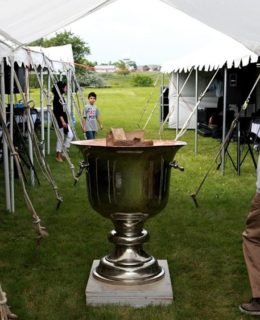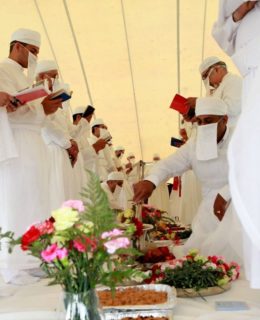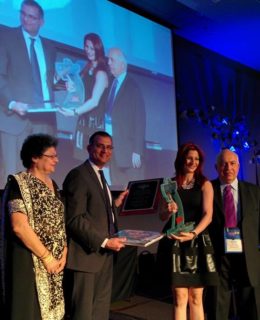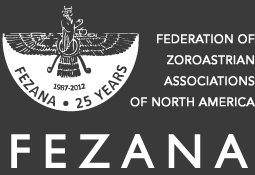Back to Glossary
INTRODUCTION
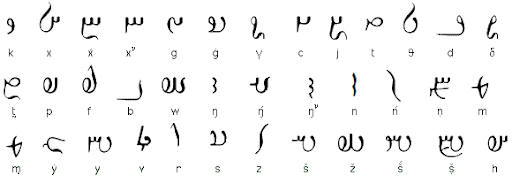 The Global Glossary project arose from the need to unify the spelling of Zoroastrian terms being used in North America. Currently, The FEZANA Religious Education committee is compiling lesson plans for all its members. As volunteer teachers started contributing to this project, it was evident that everyone had their own way of spelling terms. This group came together to offer uniformity and regularity for future authors and publications.
The Global Glossary project arose from the need to unify the spelling of Zoroastrian terms being used in North America. Currently, The FEZANA Religious Education committee is compiling lesson plans for all its members. As volunteer teachers started contributing to this project, it was evident that everyone had their own way of spelling terms. This group came together to offer uniformity and regularity for future authors and publications.
RATIONALE
Over the years, as we have settled in different English diasporas across the globe, Zoroastrians have had to adapt the pronunciation and spelling of religious terms to meet the constraints of the English alphabet.
However, these terms go back thousands of years and have themselves transformed from different languages. We felt that it was important as a legacy project for future generations of Zoroastrians across the globe, that we clarify the English spellings for as many terms as we can.
Historically, English has undergone many changes in spelling and pronunciation over the last 1000 years. The most common example being the word “aunt”. Depending on where you live, you will pronounce it with an /aw/ or it will rhyme with the little insect you see at picnics! The fact remains that we do not change the spelling of words to reflect their pronunciation. We always spell them the same, however, pronunciation will be reflected by regional dialects.
THE GLOSSARY – CONTRIBUTORS
We understand that this undertaking is not the first of its kind. Many scholars have included relevant glossaries in their own publications. We are incredibly grateful to Dr. Jenny Rose, Claremont Graduate University’s Religion Department, who provided two different glossaries from her own publications as a starting point for us. We are also grateful to the Fezana Journal for the glossary compiled by Dolly Dastoor and Roshan Rivetna.
OUR MAIN GOAL
Our intention is to make the English spelling of Zoroastrian terms as uniform as possible. We have in certain cases offered more than one spelling, depending on the term. We’ve also included the language of origin and attempted to match the English spelling as closely as possible to its original alphabet, be it Avestan, Pahlavi, modern Persian or Gujarati.
UPDATES
This glossary is version 1.0. We understand that there may be additions, corrections and deletions to be made. We welcome comments and will update the glossary on a regular basis.
Please write to: glossary@fezana.org
WHO ARE WE?
Lead:
Armaity Homavazir – Toronto, Canada
Armaity has been involved with the Zoroastrian community from a very young age. She has participated in, organized and spoken at many congresses over the years. In 1996 and 1998, she was creator and co-director of Camp Pardis – a successful, six-week, summer camp for Zoroastrian children in Toronto. At present, she is a Religion Class teacher in Toronto and involved with the FEZANA Religious Education Committee in their endeavour to create lesson plans for local teachers. Armaity is a Special Education teacher working with students with Dyslexia and/or other Language based challenges. She has a passion for languages and has studied Gujarati, French, and Italian. She also has a background in Linguistics and Psychology. It is through her work with students challenged in literacy, and her own growing awareness of English spelling and orthography, that inspired this project.
Dr. Ali Makki
Dr. Makki has been an active member of the Zoroastrian community in the United States and has served in various capacities at the California Zoroastrian Center (CZC) as a volunteer when he was a teenager and in official roles, including Election Committee for the Board of Trustees in 2014, President of the Board of Directors in 2016, and President of the Board of Trustees in 2019. He has also served as volunteer, advisor and speaker in various Zoroastrian congresses, and Zoroastrian associations in the United States, including CZC, IZA, ZAC, ZAPANJ, ZAMWI, and the Zarathushtrian Assembly. He has been a contributing author to various Zoroastrian publications (Parsiana, FEZANA Journal, Payk-e-Mehr, Payk-e-Kankash, Chehrehnama, etc.). As a student attending the University of Pennsylvania, he co-founded the Penn Zoroastrian Society and studied Avestan and Pahlavi along side his medical studies. Dr. Makki speaks, Persian, German, and several other Indo-European languages and has proficiency in Zoroastrian Dari, Gilaki, Mazandaran, Luri, and Kurdish. Dr. Makki translated the Pazand prayers to English and edited the English narrations on the audio CD ‘Namaj’ produced by the late Feri Demehri. He also served on an advisory board formed by the Tehran Mobed’s Council and Fravahar Publications in Iran for the re-publication of the late Mobed Azargoshasb’s Persian edition of the Gathas. He is currently in private practice as a pain specialist sub-specializing in Orofacial Pain and Headache Medicine at the Hoag Neurosciences Institute in Newport Beach, California and is an Associate Professor of Neurology at Loma Linda University School of Medicine.
Current Contributors:
Shahin Bekhradnia
Born in London and brought up in a Dari speaking home with her two Yazdi parents also speaking Farsi to her and her brother. After being taught to recite her prayers by her parents (her grandfather being a Mobed, poet, mathematician and astronomer), she was first taken to Iran for her sedreh pooshi aged 8 and the contrast between London and Yazd struck her as incomprehensible. This started her curiosity about her Z heritage. Having studied Latin, Ancient Greek, Russian & French until leaving school, she first studied Modern Languages at Oxford university, and some years later within Oxford’s social anthropology dept wrote her thesis for her M. Litt degree on Continuity & Change among Iranian Zoroastrians within the 20th century. This period of graduate study in Oxford allowed her to attend lectures and seminars in comparative philology, old Persian (cuneiform), Gathic, & Pahlavi where her background knowledge of grammar and 6 languages proved to be extremely helpful. She has been a teacher of languages and Ancient History all her adult life, and founded a successful A level college in Oxford. She has published many articles and given talks in several countries, and served the community by being a magistrate for 28 years, as well as being a volunteer minibus driver for 4 years in her locality. Currently she is working with Afghan refugees and has a Ukrainian refugee family living with her.
Ervad Zerkxis Bhandara – Irvine, California
Born and raised in California, Zerkxis has been serving the local Zoroastrian community for the last fourteen years. Having completed his navar (2006) and martab (2007), Zerkxis has also pursued an education in the study of religion, BA (2018) from UC Santa Barbara, and is currently working on a MA in the same from CSU Long Beach. As part of his graduate studies he has completed course work in Sanskrit and currently studies Avestan under the auspices of the NAMC with Ervad Dr. Ramiyar Karanjia. He brought both these aspects to the table for the completion of this project, in addition to his ecclesiastical knowledge of liturgies and Parsi customs.
Mobed Fariborz Shahzadi
Mobed Fariborz (Frank) Shahzadi was born in India to Iranian-Zartoshti parents, married an Iranian Zartoshti wife and lived/worked in Iran from 1972-78. He emigrated to the USA before the Khomeini revolution and currently lives in Southern California. He has had his religious education and training in Mumbai, India and has completed both his Navar and Martap at the Dadiseth Atashbehram. While attending college, he worked as a priest with his father Mobed Sohrab in Dadiseth Agiary in Mumbai. In the Nineties, he established and ran Zoroastrian Youth Educational Camps all over North America and still lectures at some of these camps. He also conducts religious classes, seminars at places including ZAC and CZC in Southern California as a guest speaker. He has authored many books on Persian Zoroastrian ceremonies, prayers and education. His textbook “The Zarathushti Religion – A Basic Text” and the “English-Persian Khordeh Avesta” prayer book are used by the Iranian and Parsee communities. Presently, he is an active Mobed, available to both the Iranian and Parsi community in North America and continues to perform priestly duties for the Zoroastrian community.
Miguel Ángel Andrés-Toledo
Miguel Ángel Andrés-Toledo is the FEZANA Professor in Zoroastrian Languages and Literatures at the Department of Near and Middle Eastern Civilizations of the University of Toronto. He has worked on ten international projects in the fields of Old and Middle Iranian languages and literatures, Zoroastrianism, and Indo-Iranian linguistics, like for instance the Avestan Digital Archive (University of Salamanca) or the Middle Persian Dictionary Project (Hebrew University of Jerusalem). His research interests mainly cover the Avestan and Pahlavi languages and literatures, with a specific focus on the Pahlavi translations and exegesis of Avestan texts and their written transmission. He has been teaching in-person and online courses on Zoroastrian languages and literatures, and other related topics, for almost two decades at several international universities. At the University of Toronto, he will offers courses on Avestan, Old Persian, Middle Persian (Pahlavi), and Zoroastrian Literature of Ancient and Late Antique Iran, and will expand the training of students with other specific courses on these languages and literatures. He has previously held academic positions at the University of Salamanca, Hebrew University of Jerusalem, University of Copenhagen, and Free University of Berlin. Among other publications, he is the author of the monographs El hilo de la vida y el lazo de la muerte en la tradición indoirania [The thread of life and the noose of death in the Indo-Iranian tradition] (2010. Valencia, Spain) and The Zoroastrian Law to Expel the Demons: Wīdēwdād 10-15. Critical Edition, Translation and Glossary of the Avestan and Pahlavi Texts (2016. Wiesbaden, Germany).
Former Contributors:
Artemis Javanshir
Artemis Javanshir has her first bachelor’s degree in Electrical Engineering from California State University Long Beach and second degree in Dental Hygiene from USC. She has served as the co-chair of FEZANA Religion Education Committee since 2018 working on formulating age-appropriate lesson plans with help from religion and accredited teachers. She is an active member of the Core Education Committee at California Zoroastrian Center teaching Persian history, religion, and Persian classes. In 2021 she joined California Zoroastrian Center Public Relation Committee in providing information about Zoroastrian religion to interested individuals. Her greatest joy is working with the youth. Through organizing Essay, Short Story and Drawing Contests she hopes to familiarize the younger community members with the teachings of Zarathushtra. She lives in Southern California with her husband, two girls and two dogs.
Tashan Mistree – Philadelphia, Pennsylvania
Tashan was fortunate to have been taught classical Zoroastrianism from a young age and has been teaching since she was a teenager. She currently resides in Philadelphia with her husband and two children and is a member and teacher at the Zoroastrian Association of Pennsylvania and New Jersey (ZAPANJ). Tashan believes in teaching Zoroastrianism the ‘fun way’, through activities, songs, arts, crafts, and relatable content for both Parents and children. She brought her everyday experience in living Zoroastrianism as a teacher parent to this project.
Editors:
Vahishta Canteenwalla
Moved to Montreal from Karachi in 1975. Mother of 2 daughters and grandmother of 3. Have been proofreading the FEZANA Journal ever since Dolly Dastoor became editor. Been involved with the Zoroastrian Association of Quebec for the last 40 years. Recently retired from the chemical industry after 25 years. Has a passion for travel and good food from around the world. Claim to fame is being the great granddaughter of Dastoor Dhalla who gave me the name Vahishta. There is no one with that name before me!!
Yasmin Pavri
Yasmin has lived in Houston for over 40 years and is an active member of the Zoroastrian Association of Houston (ZAH). She is currently on the ZAH Library and FIRES Committees and one of the copy editors for FEZANA Journal. Yasmin was a high school math teacher and later a health actuary with a consulting company. She is now retired and loves to travel, especially to visit her two grandchildren in Philadelphia.
Web:
Arzan Lali, FEZANA IT Co-chair

